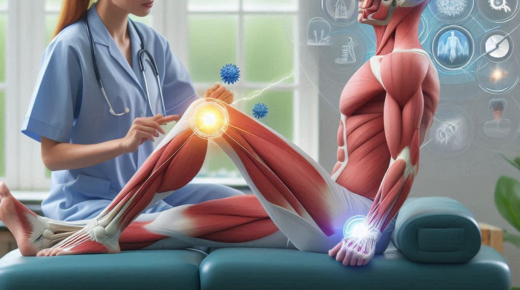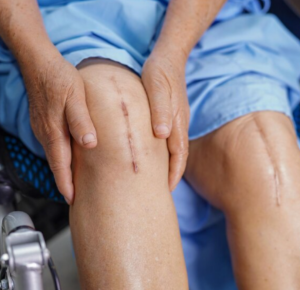
Chronic pain is a complex and persistent problem that affects millions of individuals worldwide, often leading to significant physical and psychological challenges. For those seeking effective, non-invasive solutions, physiotherapy offers a promising approach to managing chronic pain. This article explores how Physiotherapy can be a valuable tool in chronic pain management, detailing its role, techniques, and the numerous benefits it offers.
Understanding Chronic Pain
Chronic pain is typically defined as pain that lasts longer than three months, often persisting even after the initial injury or condition has been treated. Unlike acute pain, which serves as a warning signal, chronic pain doesn’t always have a clear purpose, making it more challenging to manage. It can arise from a variety of conditions, such as arthritis, fibromyalgia, back pain, or neuropathy, and can significantly impact one’s quality of life.
The Role of Physiotherapy in Chronic Pain Management
Physiotherapy plays a crucial role in addressing chronic pain by targeting both the physical and psychological aspects of pain. A physiotherapist uses a range of techniques to develop personalized treatment plans that can alleviate pain, restore function, and improve overall well-being. Here’s how physiotherapy can make a difference:
1. Comprehensive Assessment and Personalized Treatment Plans
The journey toward effective pain management starts with a thorough assessment by a physiotherapist. This includes evaluating your medical history, physical condition, lifestyle, and any factors contributing to your pain. Based on this assessment, a personalized treatment plan is developed to address your specific needs and goals, ensuring that each intervention is tailored to your unique situation.
2. Manual Therapy Techniques
Manual therapy is one of the most effective tools used in physiotherapy for chronic pain management. It involves hands-on techniques that target the soft tissues and joints to reduce pain and improve mobility. Common methods include:
- Massage and Soft Tissue Mobilization: Deep tissue massage and myofascial release help alleviate muscle tension, improve circulation, and promote relaxation.
- Joint Mobilization and Manipulation: Gentle movements of the joints enhance range of motion and reduce stiffness, which is particularly beneficial for conditions like arthritis and back pain.
3. Exercise Therapy
Exercise is a core component of physiotherapy, offering numerous benefits for individuals with chronic pain. The types of exercises prescribed may include:
- Strengthening Exercises: These target the muscles supporting the affected area, helping to reduce strain and pain.
- Flexibility and Stretching: Regular stretching exercises improve flexibility, reducing muscle tightness and enhancing mobility.
- Aerobic Conditioning: Low-impact aerobic exercises like walking or swimming help improve overall fitness and release endorphins, the body’s natural painkillers.
4. Pain Education and Self-Management Strategies
Education is a powerful tool in chronic pain management. Physiotherapists educate clients about pain mechanisms, helping them understand how pain works and how they can take control of it. This includes teaching self-management techniques, such as:
- Posture Correction: Learning proper posture helps prevent strain and reduces pain.
- Ergonomic Adjustments: Making adjustments to your work or home environment can significantly reduce pain triggers.
- Relaxation Techniques: Techniques such as deep breathing and progressive muscle relaxation can help manage pain and reduce stress.
5. Modalities and Adjunct Therapies
In addition to manual therapy and exercise, physiotherapists often use adjunct therapies to complement treatment. These include:
- Electrotherapy: Techniques like Transcutaneous Electrical Nerve Stimulation (TENS) can provide pain relief by altering pain signals to the brain.
- Heat and Cold Therapy: Applying heat or cold helps reduce inflammation, relax muscles, and relieve pain.
The Benefits of Physiotherapy in Chronic Pain Management
The benefits of physiotherapy for chronic pain management are numerous and go beyond just physical relief. Here’s how physiotherapy can improve your life:
1. Pain Reduction
Physiotherapy directly targets the sources of pain, providing significant relief. Through techniques such as manual therapy, exercise, and electrotherapy, it addresses the root cause of pain, rather than just masking the symptoms.
2. Improved Functionality and Mobility
Chronic pain can severely limit your ability to perform daily activities. Physiotherapy helps restore strength, flexibility, and mobility, allowing you to regain independence and enjoy a better quality of life.
3. Reduced Reliance on Medications
One of the most significant advantages of physiotherapy is that it offers a non-pharmacological approach to pain management. This can help reduce the need for pain medications, minimizing the risk of side effects and dependency.
4. Enhanced Mental Health and Well-Being
Living with chronic pain can take a toll on your mental health, often leading to symptoms of depression and anxiety. By effectively managing pain, physiotherapy can have a positive impact on your overall mental health, improving mood and reducing stress.
When to Consider Physiotherapy for Chronic Pain
If you’re struggling with chronic pain, it might be time to consider physiotherapy Aurora. Physiotherapy can be particularly beneficial if:
- Your pain has persisted for more than three months.
- The pain is affecting your daily activities and quality of life.
- You have limited mobility or difficulty performing routine tasks.
- Medications alone are not providing adequate relief.
Conclusion
Physiotherapy is a valuable and effective approach to managing chronic pain. By offering personalized treatment plans that address both the physical and psychological aspects of pain, physiotherapy empowers individuals to take control of their pain and improve their quality of life. Through techniques such as manual therapy, exercise therapy, education, and adjunct therapies, physiotherapy provides a comprehensive and holistic approach to pain management.
If you’re experiencing chronic pain and looking for a non-invasive, evidence-based treatment option, consider exploring the benefits of physiotherapy in Aurora. By working with an experienced physiotherapist, you can take the first step towards achieving lasting relief and regaining control over your life.



